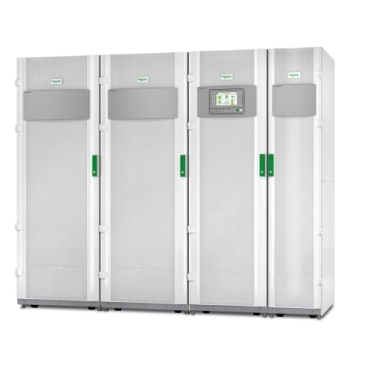3 Big Benefits and Challenges of Lithium-ion Batteries for UPS Power Supply Systems

As the world moves towards digitalization and technology, our society and economy are witnessing immense development across all sectors. However, amid all the advantages, it is important to remember that most of these technologies depend on a reliable power supply. The primary responsibility of a UPS power supply is to provide emergency power to electrical apparatuses in case the power source is lost. This saves several industries from losing a huge amount of data, money, and opportunities. Even when we talk about the corporate sector, most offices and workplaces are loaded with multiple desktops for the employees to work on, and during a sudden power cut, there is a risk of all the unsaved data getting erased.
In this article, we will bring under purview the benefits and challenges of Lithium-ion batteries for UPS power supply systems. But before that, let's try to comprehend the meaning of lithium-ion batteries and what they have to offer.
In layman's terms, a lithium-ion battery is a rechargeable battery that is charged and discharged by lithium-ions. Generally, these batteries carry the capacity to store high-capacity power and are widely used in electronic applications like computers, industrial equipment, automobiles, smartphones, and more. Most lithium-ion batteries are composed of the cathode and the anode, an electrolyte, and a separator to divide the two electrodes. Now, with time, lithium-ion batteries are replacing commonly used VRLA batteries for all the right reasons.
Below we have listed some of the many benefits of deploying lithium-ion batteries for your UPS power supply systems:
-
Better Battery Life
By deploying lithium-ion batteries in UPS power supply systems, you get a much better life expectancy of around ten years, which means that they'll last as long as the UPS system itself. Better life expectancy will also lead to enhanced efficiency, low maintenance cost, and better savings.
-
Light Weight
Usually, batteries used in UPS power supply systems are extremely bulky and space-consuming. On the other hand, lithium-ion batteries deliver more power in less space and offer more flexibility for installation.
-
Broad Temperature Range
Lithium-ion batteries have a higher tolerance in comparison with regular VRLA batteries. In most cases, lithium-ion batteries carry the potential to survive harsh temperatures that can shoot up to 40° C, making them suitable for outdoor and plant floors applications.
Now, let's understand the challenges of deploying lithium-ion batteries for UPS power supply systems.
-
Stringent Guidelines
Since lithium-ion batteries are usually coupled with high charging and thermal sensitivity, they come with a strict set of instructions and guidelines. Therefore, little negligence with li-ion technology can sometimes lead to fire or explosion.
-
Costly
Investing in li-ion technology can be a lot more expensive. This is one of the main reasons people are more inclined to choose normal VRLA batteries. However, lithium batteries can offer high-quality performance and efficiency for a longer period of time
-
Reworked Firmware
Generally, a lithium battery is not hot-swappable in a UPS system; therefore, an update in the existing firmware is required to achieve the runtime predictions for the operation of Li-ion cells which can turn out to be a time-consuming task.
It is imperative to get in touch with a leading service provider who carries expertise in the field of electronics. They come with a competent team of technicians who will ensure that the installation process is carried out reliably and will help you out through hazardous situations that might arise in the future.



















